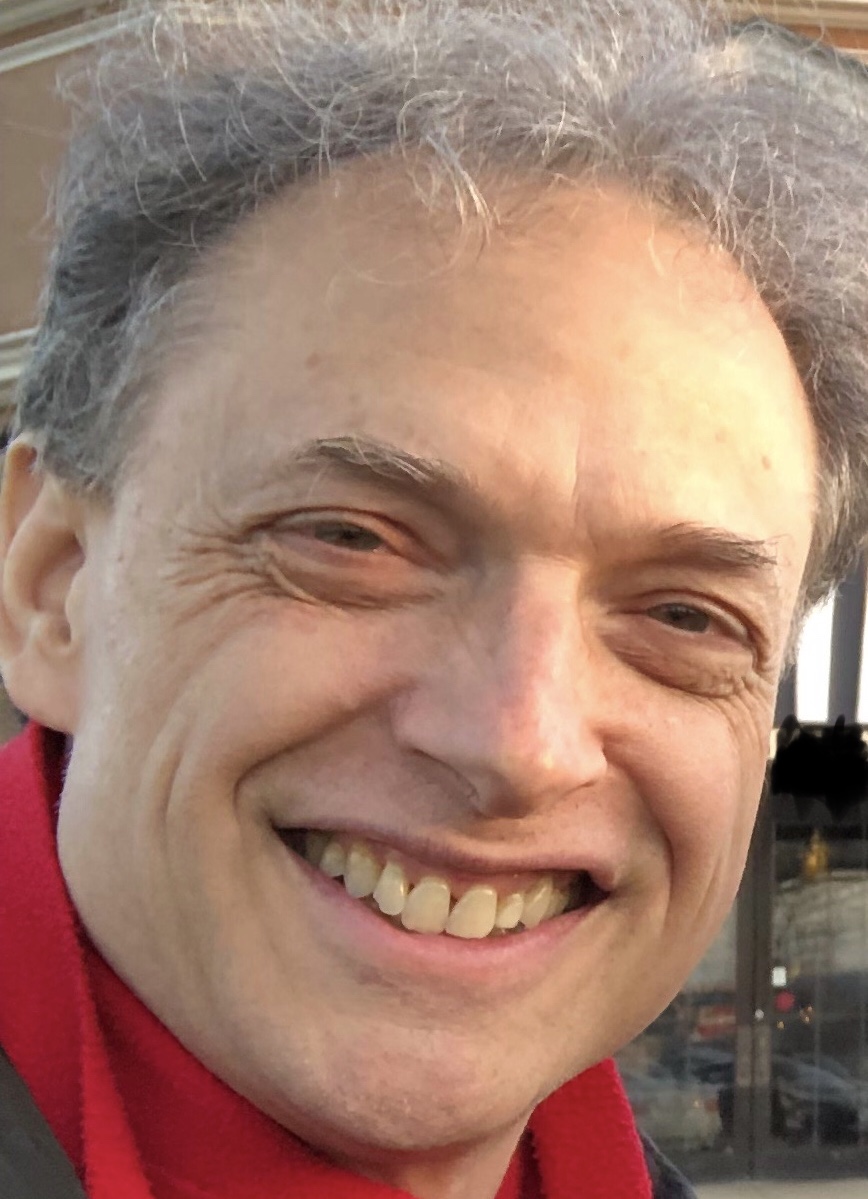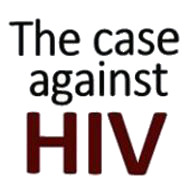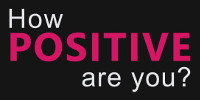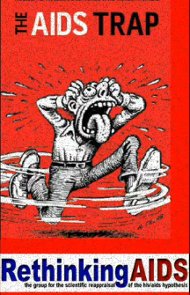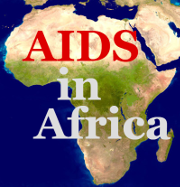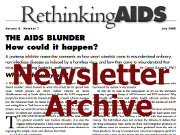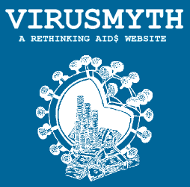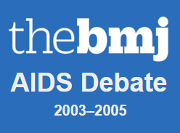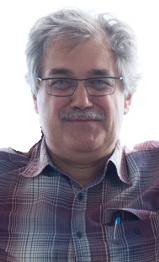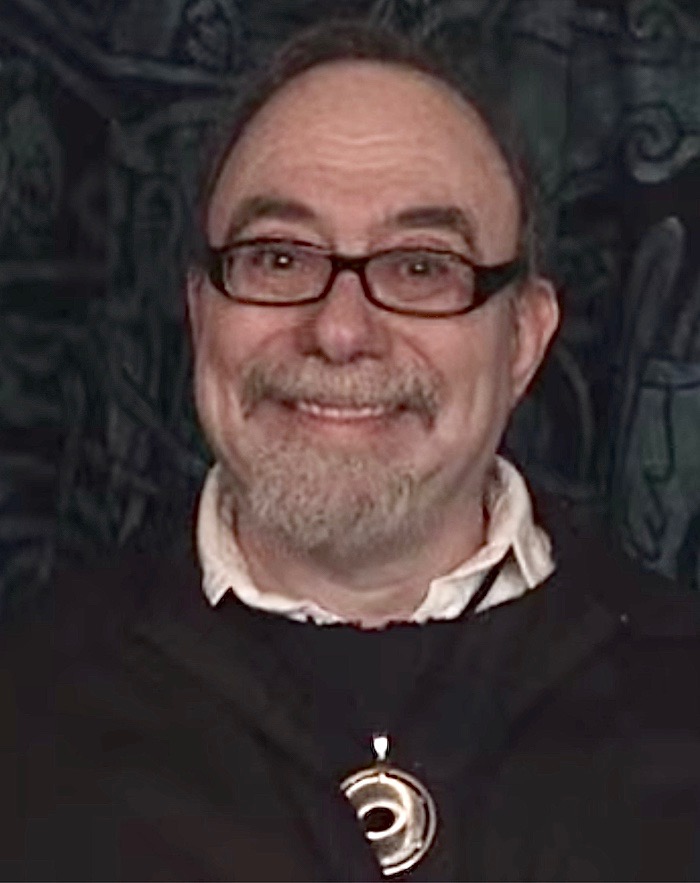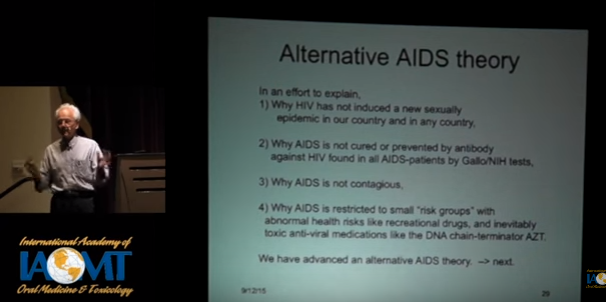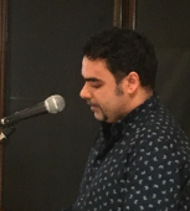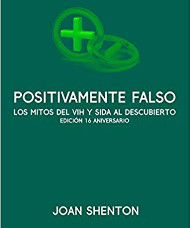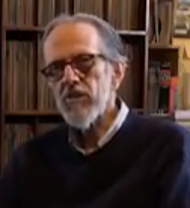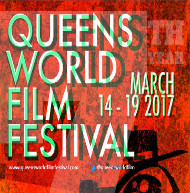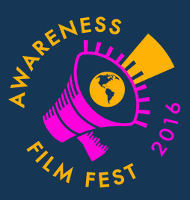January 2020
The AZT Wikipedia Page – Unsafe Despite the Lies
RA President David Crowe writes: AZT is an incredibly dangerous drug because it directly interferes with DNA synthesis...Hence the name, “DNA chain terminator” for this class of drugs...This is not a complete analysis of all the errors in the Wikipedia AZT page, there are probably many more. Given the high quality of the English, and the accuracy of claims that do not put AZT in a negative light, it is hard to believe that the authors were ignorant of the extensive literature showing that AZT is not effective, and is highly unsafe. David Crowe continues...
June 2019
Rethinking AIDS Addresses the UK Haemophilia Inquiry
David Crowe, President of Rethinking AIDS, informs the UK Haemophilia Inquiry, that it wasn’t HIV infected blood that killed haemophiliacs in the 1980s and 1990s, but the impurities in the Factor VIII that haemophiliacs needed to avoid bleeding to death and, most importantly, the widespread prescribing of AZT, starting in 1987. This was the year when the death rate in HIV-positive haemophiliacs soared. This is not new information, AIDS critics were noting the scientific evidence in the 1990s, but the message has still not got through, probably because the people responsible for panicking when the HIV=AIDS theory was first postulated, would have to admit that they were the guilty parties, not the heroes.
RA President David Crowe speaks about the inquiry
From the Archives
Increases in reported death in South Africa from 1997 to 2002
Rodney Richards
In conclusion, everything put forth in this analysis supports the contention that the majority of the observed increases in reported death in SA over the past several years—even among the sexually active—are the result of improvements in death reporting...Advocacy campaigns based on the unfounded proposition that these increases are primarily the result of HIV/AIDS may serve a valuable purpose in drawing attention to a potentially alarming problem, but to sacrifice an accurate understanding of South Africa’s mortality data to this end can ultimately be of no value to public health.
October 2018
Valencia, Spain
Meeting of AIDS Dissidents

It was a small gathering of 16 people. Nearly all of the attendees had been diagnosed “HIV” antibody positive and many had been heroin addicts. Some were taking antivirals, some were not, and some had given them up altogether. Everybody wanted to learn about the history of the challenge to the virus/AIDS hypothesis.
Read the English report
Read the Spanish report
November 2018
Case (17-1537) Tommy Morrison versus Quest Et Al has reached the U.S. Supreme Court: "The case will argue Quest labs never tested for the HIV virus, and its lab reports falsifying HIV infected status were misleading and dangerous, to the detriment and ruination of former world heavyweight champion Tommy Morrison’s boxing career."
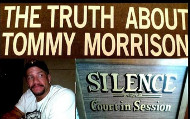
Trisha Morrison, widow of former WBO heavyweight champion Tommy Morrison describes the truth about Tommy's incorrect diagnosis: "The final report on Tommy, when they did the test, showed no HIV virus in him, no AIDS disease, but yet ESPN still runs with the story that Tommy Morrison had AIDS."
Leo Varela

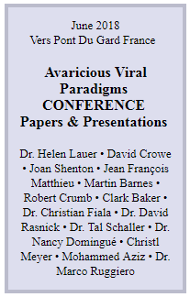
June 2018
Challenging Viral Paradigms
CONFERENCE

Legendary cartoonist R. Crumb has illustrated a theme of the VERS PONT DU GARD France conference — Medicine meets the business concept: unmasking the flaws behind profit-driven research and practice.
HIV/AIDS is just one example of many viral paradigms which coincide with $millions in research money and pharma income. But is each virus proven to be pathogenic? What are the implications for safer treatments other than dangerous antiviral medicines and vaccines?
November 2017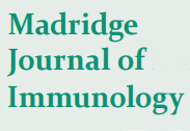
Two Rethinking AIDS board members, Helen Lauer and Joan Shenton, have published a paper in the Madridge Journal of Immunology criticizing the management of disease in Africa by foreigners. Some of the problems identified are poorly defined and overly flexible disease definitions (most notably ‘AIDS’), diagnostic tests that result in many false positives, poor statistics that skew understanding of the severity of health crises, and the marginalization of local health authorities: "The considerations collated here suggest that gross errors persist in the One-Virus-Fits-All model of addressing poverty-related illness in Africa, re-categorized under umbrella labels such as 'HIV/AIDS' and 'West African Ebola'. The study of infectious disease at the genomic level is gradually turning away from surveillance of HIV variation and prevalence; and the discovery of new Ebola strains is not a high priority."
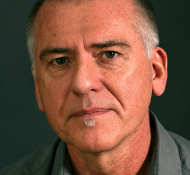
D.C. Journalist Terry Michael — "...Michael, who was gay, startled some mainline gay and AIDS activists when he began writing commentaries aligning himself with a small faction of AIDS researchers who disputed the effectiveness and widespread use of anti-retroviral drugs that most experts say ended AIDS as a terminal illness.... 'Having spent the past three years studying mysteries of the HIV=AIDS paradigm, I am ready to admit I am a full-fledged, out-of-the-closet, HIV-AIDS denialist,' Michael wrote in a Jan. 3, 2010 column in the Washington Times..."
August 2017
Initiatives to Improve the Quality of Life of HIV Positive Diagnosed Subjects: "We have found much scientific information that differs substantially from what is commonly disseminated about the risks of HIV transmission. Diagnostic methods are far from achieving the reliability required to establish lifelong high-risky therapies for patients. The pathogenicity of the virus is not well determined. Nor have we been able to establish how the antigens and antibodies used to make prospective or confirmatory diagnoses are obtained. Eight years after Luc Montagnier has informed us that 'a normal body gets rid of HIV naturally', we could not find any scientific publication that has elaborated this idea. Currently, a person who is diagnosed positive for HIV is never fully re-tested, as it is assumed that this condition can never be reversed. As a result of our research and the issues we mentioned, we strongly recommend putting this assumption under scrutiny."

Rethinking AIDS wishes to honor the memory of Dr. Gordon Stewart, one of our board members until his death in October, 2016. He was a highly respected, well credentialed member of the medical establishment who was never afraid to criticize when he thought some mainstream dogma was wrong. He did this with the Whooping Cough vaccine, but most importantly and most notably, with HIV/AIDS, starting in 1984.
Index on Censorship has released a case study detailing the repeated censorship of the film Positive Hell. A reader's comment: "If this documentary was made by flat-earthers, no one would imagine that NASA would pressure film festivals to pan the documentary. What makes this documentary dangerous is that it deals with facts that — when widely understood — erodes confidence in a pathological industry and threatens the credibility of thousands of incompetent doctors, universities, dangerous bureaucracies, and the United States as well. The CDC wouldn’t care if Joan Shenton was wrong — what makes them nervous is that she's right."
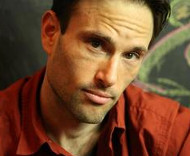
April 2017 — Liam Scheff was one of the most penetrating and fearless investigative reporters of our time and one of the funniest YouTube satirists of fake science. He broke a story on HIV/AIDS that was bigger, darker, and more devastating than anything before or since. It came to be known as "Guinea Pig Kids."
April 2017
MAHA STAR
Rethinking AIDS
in Indonesia
30,000 Member
Facebook Group

The movement is supported by the work of Luc Montagnier, winner of the Nobel Prize in Medicine and Physiology, and Kary Mullis, Nobel laureate in chemistry.
March 2017
CENSORED

A video describing the censoring of "Positive Hell", an award-winning 30 minute documentary.
PRESS RELEASE
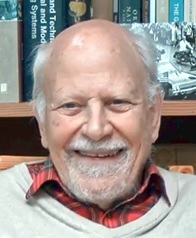
April 2016 — Dr Herxheimer was always alert to claims made by the pharmaceutical industry about safety and efficacy of their products: "I think zidovudine [AZT] was a drug that was never really evaluated properly and that its efficacy has never been proved but its toxicity certainly is important. And I think it has killed a lot of people — especially at the higher doses. I personally think that it is not worth using alone or combination at all."

January 2016 — Robert Laarhoven, a long-time AIDS rethinker, and founder of the VirusMyth website, died of lung disease in November, 2014. He will be missed by the entire community. Rethinking AIDS will ensure that the VirusMyth website lives on.

September 2015 — Joan Shenton's film Positive Hell has been officially selected for inclusion in Los Angeles CineFest, a monthly international online event. Positive Hell is the story of five individuals who have defied their doctors and lived on for nearly thirty years with a diagnosis of death. The film highlights a network of people diagnosed HIV Positive in the province of Galicia in Northern Spain.

August 2015 —
Alumnae News features a full-page review of
Joan Shenton's film
Positively False: "The US government was unable to prove a likelihood that an HIV person is at risk, even during unprotected sex, because there is no proof. And if the transmission of HIV is now in such doubt, the entire edifice of the infectious hypothesis for AIDS will surely come tumbling down."
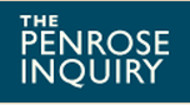
March 2015 — Commentary on the Penrose Inquiry Report, by M. Aziz: "The dissident view is that the more severe the haemophilia the more likely chance there is of testing HIV+, partly because of the 'antigen overload' of clotting treatment."

September 23, 2014 —
Questioning the HIV-AIDS hypothesis: 30 years of dissent, by
Patricia Goodson:
“The HIV/AIDS hypothesis is one hell of a mistake”, wrote Kary Mullis in 1996. Mullis – Nobel Laureate in Chemistry, 1993 – and other distinguished scientists have claimed the HIV-causes-AIDS hypothesis is false, unproductive, and unethical.
African scientists and policymakers should familiarise themselves with the body of literature that demonstrates the contradictions, anomalies and inconsistencies in the conventional view of Aids. Africa has suffered from numerous real wars over the past 30 years, but a prism called “the war on Aids” continues to distort its public health landscape. It is time for a critical look at Aids in Africa. African scientists and policy-makers should familiarise themselves with the literature that demonstrates the contradictions, anomalies and inconsistencies in the conventional view that the symptoms of Aids are caused by a single viral infection.
 International Development Policy — In a rarified and politically correct discussion of African health policy, which always ends with Western NGOs demanding more money to save Africa (which somehow never happens), Rethinking AIDS board member Helen Lauer addresses the reality that Health SWAT teams and vaccines aren’t going to solve the development problems of Africa. If Africans don’t get access to simple things like clean water, no high tech health interventions can bring real change. While the discussion is mostly about Ebola, it equally applies to AIDS and other epidemics blamed on infectious agents ignoring all signs of social, environmental and economic factors.
International Development Policy — In a rarified and politically correct discussion of African health policy, which always ends with Western NGOs demanding more money to save Africa (which somehow never happens), Rethinking AIDS board member Helen Lauer addresses the reality that Health SWAT teams and vaccines aren’t going to solve the development problems of Africa. If Africans don’t get access to simple things like clean water, no high tech health interventions can bring real change. While the discussion is mostly about Ebola, it equally applies to AIDS and other epidemics blamed on infectious agents ignoring all signs of social, environmental and economic factors.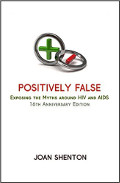 January 2016 — A review of Joan Shenton's book, Positively False: Exposing the Myths around HIV and AIDS:
January 2016 — A review of Joan Shenton's book, Positively False: Exposing the Myths around HIV and AIDS: February 24, 2015 — The highest U.S. military court's reversal of a Kansas airman's aggravated assault conviction for exposing multiple sex partners to HIV at swinger parties in Wichita will effectively end such prosecutions in the armed forces, his attorney said. The U.S. Court of Appeals for the Armed Forces unanimously ruled Monday that prosecutors failed to prove that any of David Gutierrez's acts were likely to transmit HIV to his partners. That decision overturns a 25-year precedent that had allowed military personnel to be convicted of aggravated assault solely on the basis of a positive HIV test, attorney Kevin McDermott said Tuesday. Gutierrez was not accused of infecting anyone with HIV.
February 24, 2015 — The highest U.S. military court's reversal of a Kansas airman's aggravated assault conviction for exposing multiple sex partners to HIV at swinger parties in Wichita will effectively end such prosecutions in the armed forces, his attorney said. The U.S. Court of Appeals for the Armed Forces unanimously ruled Monday that prosecutors failed to prove that any of David Gutierrez's acts were likely to transmit HIV to his partners. That decision overturns a 25-year precedent that had allowed military personnel to be convicted of aggravated assault solely on the basis of a positive HIV test, attorney Kevin McDermott said Tuesday. Gutierrez was not accused of infecting anyone with HIV.


